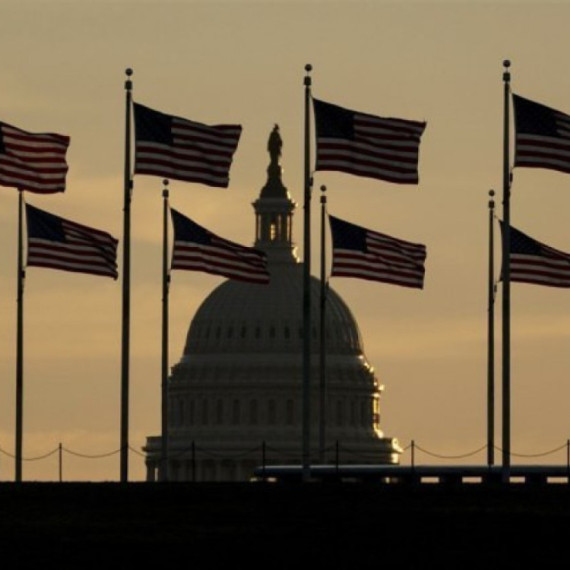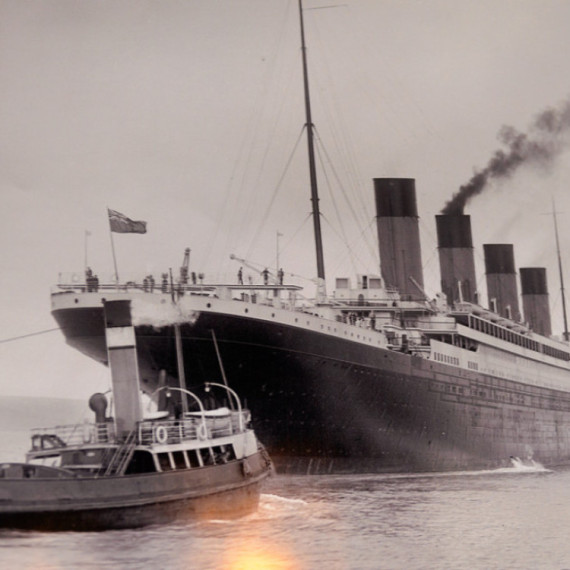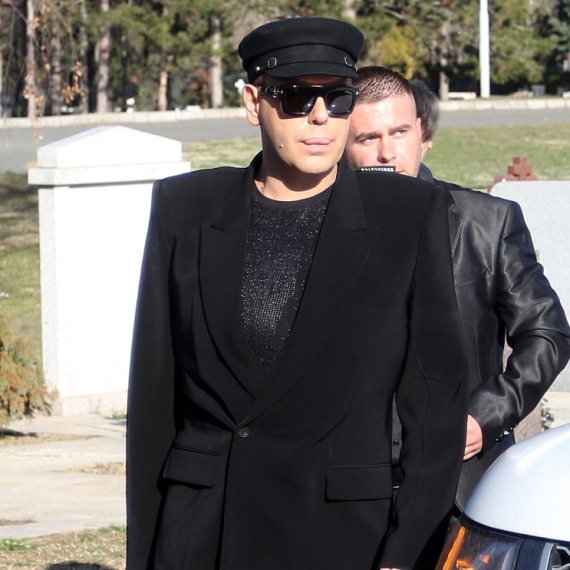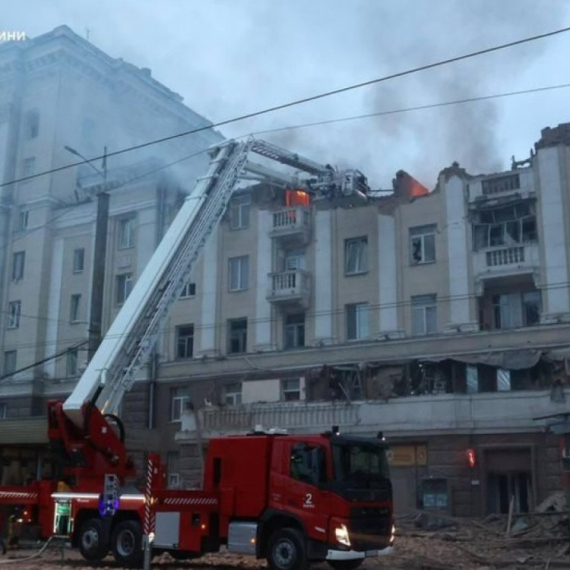Coalition strikes deal on public enterprises
Serbia's ruling coalition made a deal Friday to distribute the top jobs in the country's lucrative public sector.
Saturday, 06.10.2007.
17:09

Serbia's ruling coalition made a deal Friday to distribute the top jobs in the country's lucrative public sector. B92 has learned that the leaders of the Democratic Party (DS), the Democratic Party of Serbia (DSS), their partners New Serbia (NS), and G17 Plus agreed to divide up seats in 30 of Serbia's most important public enterprises along the lines of the parliamentary election results each of the parties in question achieved. Coalition strikes deal on public enterprises Boris Tadic (DS), Vojislav Kostunica (DSS), and Mladjan Dinkic (G17 Plus) were present at a meeting that made the decision yesterday, along with "the narrow circle of top officials from each party," sources have revealed. The distribution of managing positions in the public companies among the parties fighting to win their votes, was likely the last thing on the Serbian voters' minds as they took to the polling stations in January, but their choice has now determined that G17 Plus will have only five top jobs to give to its members, while the DS and DSS will have the remaining 25 positions. Not only that, but the deal on the public company managing boards is in fact a precondition that the parties have set for themselves to arrive at another agreement – on when to hold yet more elections, this time presidential and local. If the Serbian voters are soon given a date when they will be able to cast their ballots and choose the next president and new local administrations, a crisis of the cabinet, put together at the eleventh hour last May, will have been averted. However, that outcome is still uncertain this Saturday, as the DSS, which came in third in the January ballot, behind the Radicals and Democrats, has been increasingly reluctant to see to its end of the May bargain, which saw Kostunica hold on to the premiership, promising support to Tadic's reelection as president by the end of 2007. The valid Constitutional Law regulates that both local and presidential elections must be called by December 31 and held within the next three months at the latest, but the DSS says the ongoing Kosovo status crisis is a good enough reason to postpone the votes. Kostunica's pre-election coalition partner, Velimir Ilic, and his party, New Serbia, have even floated the idea they may field their own candidate for the next president once the elections are called, apparently forgetful of a coalition pledge to back incumbent Tadic. "It is not a good idea to link presidential elections with the Kosovo issue outcome. The problem of Kosovo's formal status has been around since 1999 and it will not go away on December 10, 2007, or several days or months before or after that date," the Democrats' vice president and top Vojvodina official, Bojan Pajtic, told reporters today. The DSS is demonstrating "an unfair approach" toward the Serbian president, the presidential vote, and the ruling coalition, Pajtic said. "We can't link the issue of an election date to whether or not they will be able to come up with a candidate that will avoid a catastrophe in the polls," he added. "Unless the DSS make a clear choice between Boris Tadic and [Radicals leader] Tomislav Nikolic, then this coalition, and with it this cabinet, has no future whatsoever," the DS official said. Pajtic's rhetoric came close to that heard in an election campaign when he described Ilic's chances in a presidential vote as "not even close to making it to the second round." Ilic is a government minister, along with six fellow DSS-NS politicians, 12 Democrats and four of Mladjan Dinkic's G17 Plus members. "On the other hand, an equation sign should not be placed between the DSS and NS. After all, Kostunica and Ilic are not one and the same," Pajtic ended his statement on an optimistic note. Whether the deal on public enterprises reportedly struck yesterday will help heal the rift, remains to be seen. Other contentious issues that have been given less prominence in public statements made by party officials pertain to the country's strategic direction, its future EU and NATO membership, the former conditioned by full cooperation with the Hague, the latter met with opposition by the DSS and endorsement by the DS. Serbia's official Kosovo policy, which offers wide, or "essential" autonomy for the province, but insists on preserving the country's integrity and sovereignty over its entire territory, seems to be the only major issue on which the so-called Democratic Bloc coalition stands united, a little over four months after it was put together. Jeremic, Tadic, Kostunica, Samardzic (FoNet, archive)
Coalition strikes deal on public enterprises
Boris Tadić (DS), Vojislav Koštunica (DSS), and Mlađan Dinkić (G17 Plus) were present at a meeting that made the decision yesterday, along with "the narrow circle of top officials from each party," sources have revealed.The distribution of managing positions in the public companies among the parties fighting to win their votes, was likely the last thing on the Serbian voters' minds as they took to the polling stations in January, but their choice has now determined that G17 Plus will have only five top jobs to give to its members, while the DS and DSS will have the remaining 25 positions.
Not only that, but the deal on the public company managing boards is in fact a precondition that the parties have set for themselves to arrive at another agreement – on when to hold yet more elections, this time presidential and local.
If the Serbian voters are soon given a date when they will be able to cast their ballots and choose the next president and new local administrations, a crisis of the cabinet, put together at the eleventh hour last May, will have been averted.
However, that outcome is still uncertain this Saturday, as the DSS, which came in third in the January ballot, behind the Radicals and Democrats, has been increasingly reluctant to see to its end of the May bargain, which saw Koštunica hold on to the premiership, promising support to Tadić's reelection as president by the end of 2007.
The valid Constitutional Law regulates that both local and presidential elections must be called by December 31 and held within the next three months at the latest, but the DSS says the ongoing Kosovo status crisis is a good enough reason to postpone the votes.
Koštunica's pre-election coalition partner, Velimir Ilić, and his party, New Serbia, have even floated the idea they may field their own candidate for the next president once the elections are called, apparently forgetful of a coalition pledge to back incumbent Tadić.
"It is not a good idea to link presidential elections with the Kosovo issue outcome. The problem of Kosovo's formal status has been around since 1999 and it will not go away on December 10, 2007, or several days or months before or after that date," the Democrats' vice president and top Vojvodina official, Bojan Pajtić, told reporters today.
The DSS is demonstrating "an unfair approach" toward the Serbian president, the presidential vote, and the ruling coalition, Pajtić said.
"We can't link the issue of an election date to whether or not they will be able to come up with a candidate that will avoid a catastrophe in the polls," he added.
"Unless the DSS make a clear choice between Boris Tadić and [Radicals leader] Tomislav Nikolić, then this coalition, and with it this cabinet, has no future whatsoever," the DS official said.
Pajtić's rhetoric came close to that heard in an election campaign when he described Ilić's chances in a presidential vote as "not even close to making it to the second round."
Ilić is a government minister, along with six fellow DSS-NS politicians, 12 Democrats and four of Mlađan Dinkić's G17 Plus members.
"On the other hand, an equation sign should not be placed between the DSS and NS. After all, Koštunica and Ilić are not one and the same," Pajtić ended his statement on an optimistic note.
Whether the deal on public enterprises reportedly struck yesterday will help heal the rift, remains to be seen. Other contentious issues that have been given less prominence in public statements made by party officials pertain to the country's strategic direction, its future EU and NATO membership, the former conditioned by full cooperation with the Hague, the latter met with opposition by the DSS and endorsement by the DS.
Serbia's official Kosovo policy, which offers wide, or "essential" autonomy for the province, but insists on preserving the country's integrity and sovereignty over its entire territory, seems to be the only major issue on which the so-called Democratic Bloc coalition stands united, a little over four months after it was put together.












































Komentari 2
Pogledaj komentare